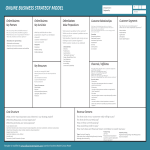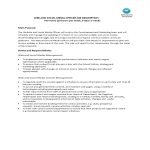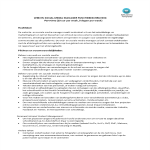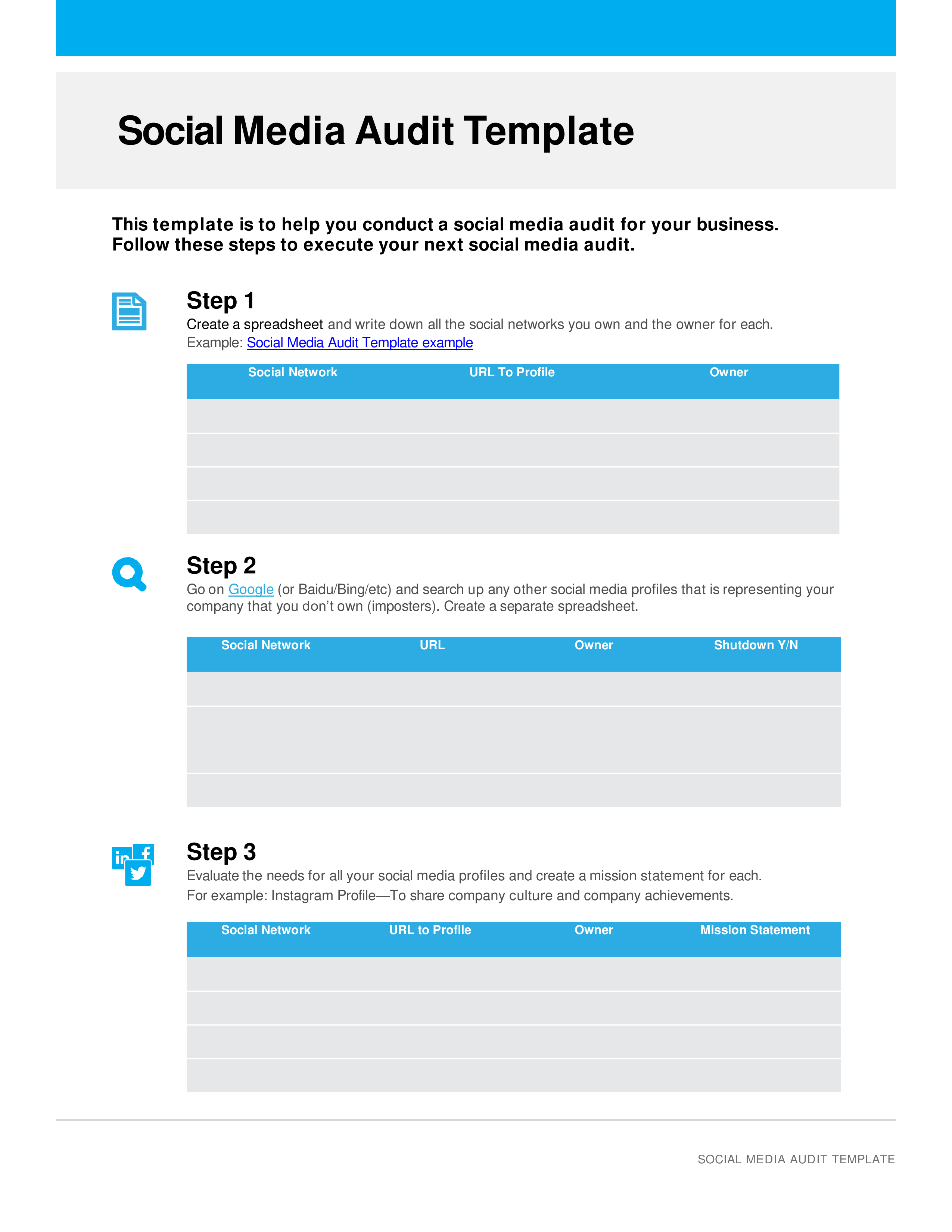Social Media Audit Plan in 6 steps
Save, fill-In The Blanks, Print, Done!

Download Social Media Audit Plan in 6 steps
Adobe Acrobat (.pdf)- This Document Has Been Certified by a Professional
- 100% customizable
- This is a digital download (110.39 kB)
- Language: English
- We recommend downloading this file onto your computer.
How well is your company performing on Social Media? How to perform a Social Media Audit Plan?
Find answers to these questions and downloading our Social Media Marketing (SMM) Audit Plan template will help you analyze your current social media presence and create a plan to improve your performance. It includes sections on analyzing your current strategy, establishing goals, and creating a plan of action.
An SMM Audit Plan is a systematic and structured process that organizations or individuals follow to assess and evaluate their social media presence and performance. The primary purpose of conducting a social media audit is to gain insights into the effectiveness of your social media marketing efforts, identify areas for improvement, and make informed decisions to enhance your social media strategy. Here's how to create a Social Media Audit Plan:
- Define Objectives and Goals:
- Clearly outline the goals and objectives of your social media audit. What specific aspects of your social media presence and performance do you want to evaluate and improve?
- Identify Key Platforms:
- List all the social media platforms your organization or brand is active on. This includes major platforms like Facebook, Twitter, Instagram, LinkedIn, Pinterest, YouTube, TikTok, and any others relevant to your industry.
- Gather Data:
- Collect data and information related to your social media profiles, such as follower counts, engagement metrics (likes, comments, shares), post frequency, and content types.
- Review Content:
- Analyze the quality and effectiveness of your social media content. Look at the consistency of your messaging, the relevance of your posts to your target audience, and the use of visuals and multimedia.
- Assess Engagement:
- Evaluate how well you engage with your audience. Are you responding to comments and messages promptly? Is there an active conversation happening with your followers?
- Analyze Metrics:
- Dive into your social media analytics. Examine metrics like reach, impressions, click-through rates, conversion rates, and demographic insights. Identify which posts and strategies have been most successful.
- Competitor Analysis:
- Research and analyze the social media presence and performance of your competitors. Compare your metrics, content strategies, and engagement levels with theirs to identify opportunities for improvement.
- Compliance and Brand Consistency:
- Ensure that your social media profiles are compliant with platform guidelines and that your branding elements (profile pictures, cover photos, bios) are consistent across platforms.
- Evaluate Advertising Campaigns:
- If you run paid social media advertising campaigns, assess their performance. Look at ad spending, click-through rates, conversion rates, and ROI.
- Identify Strengths and Weaknesses:
- Based on the data and insights gathered, identify the strengths and weaknesses of your current social media strategy.
- Set Actionable Goals:
- Establish specific, measurable, and achievable goals based on your audit findings. What changes or improvements do you want to implement?
- Develop an Action Plan:
- Create a detailed action plan that outlines the steps you'll take to address the weaknesses and capitalize on the strengths identified during the audit.
- Implement Changes:
- Put your action plan into motion. This may involve content adjustments, engagement strategies, ad campaign optimizations, or other changes to your social media approach.
- Monitor Progress:
- Continuously monitor the impact of the changes you've made and track your progress toward achieving your goals.
- Regular Audits:
- Schedule regular social media audits (quarterly, semi-annually, or annually) to ensure that your social media strategy remains effective and aligned with your objectives.
A Social Media Audit Plan is a valuable tool for improving the performance of your social media efforts and ensuring that your social media presence remains relevant and engaging to your target audience. It helps you make data-driven decisions and adapt your strategy in a rapidly evolving digital landscape.
Using this Social Media Strategy template guarantees you will save time, cost and effort!
DISCLAIMER
Nothing on this site shall be considered legal advice and no attorney-client relationship is established.
Leave a Reply. If you have any questions or remarks, feel free to post them below.
Top 10 Webshop templates for Webshop owners!
Find here the best web shop templates online and use them to improve your webshop's image, efficiency and effectiveness!
Read moreRelated templates
Latest templates
Latest topics
- Google Docs Templates
How to create documents in Google Docs? We provide Google Docs compatible template and these are the reasons why it's useful to work with Google Docs... - IT Security Standards Kit
What are IT Security Standards? Check out our collection of this newly updated IT Security Kit Standard templates, including policies, controls, processes, checklists, procedures and other documents. - Letter Format
How to format a letter? Here is a brief overview of common letter formats and templates in USA and UK and get inspirited immediately! - Google Sheets Templates
How to work with Google Sheets templates? Where to download useful Google Sheets templates? Check out our samples here. - Influencer Marketing Templates
What makes a good influencer? Check out our effective and useful Influencer Marketing Templates here!
cheese




